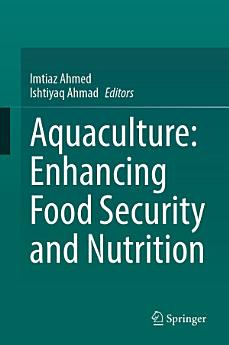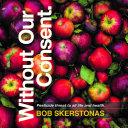Aquaculture: Enhancing Food Security and Nutrition
About this ebook
The book entitled as “Aquaculture: Enhancing Food Security and Nutrition” sheds light on the various forms of aquaculture like freshwater, marine and brackish water cultivation highlighting their benefits and potential drawbacks. The focus is on in what way aquaculture practices can be environmentally responsible, economically viable and socially inclusive, paving the itinerary for a balanced and sustainable food ecosystem. By exploring the advancements in aquaculture technologies such as recirculating aquaculture systems (RAS) and integrated multi-trophic aquaculture (IMTA), the book also advocates the environmental friendly and resource-efficient practices that enhance both food security and nutrition. Moreover, the book underscores the nutritional value of fish and its products, highlighting their rich nutrient composition including protein, amino acids, fatty acids, vitamins and minerals, which are fundamental for human health. It also offers insights about the incorporation of fish and its products in the food that can positively impact nutrition and combat malnutrition, especially in vulnerable human populations.
About the author
Dr. Imtiaz Ahmed is a faculty member working as Professor at Department of Zoology, University of Kashmir, India. His pioneering contribution to the field of research is the determination of complete essential amino acid requirements of two warm-water fish species namely Indian major carp, Cirrhinus mrigala and Asian stinging catfish, Heteropneustes fossilis at fingerling stage. Besides, he has also established the amino acid requirements of rainbow trout, Oncorhynchus mykiss fingerlings cultured in the Himalayan regions. Moreover, Dr. Ahmed has determined the nutritional values and hemato-biochemical reference intervals of indigenous Snow trout Schizothorax spp. of Kashmir. Dr. Ahmed has published more than 120 papers in well reputed international Journals. With outstanding contribution in his field of research, he has been recognized among top 2% most cited scientist in the world by Stanford University.
Dr. Ishtiyaq Ahmad currently serves as an Assistant Professor (Contractual) at the Department of Zoology, University of Kashmir, India. Previously, Dr. Ahmad worked as a Senior Research Fellow at the Division of Fish Genetics and Biotechnology, Faculty of Fisheries, Sher-e-Kashmir University of Agricultural Sciences and Technology of Kashmir. His expertise spans fish nutrition, physiology and biochemistry, with a particular focus on nutrigenomics. Notably, his research has significantly contributed to establishing the optimal branched-chain amino acid requirements for rainbow trout. Dr. Ahmad has an extensive publication record, having authored over 45 research papers in high-impact international journals. In recognition of his academic contributions, he serves on the editorial boards of esteemed international journals, including PLOS ONE and Frontiers in Nutrition.




